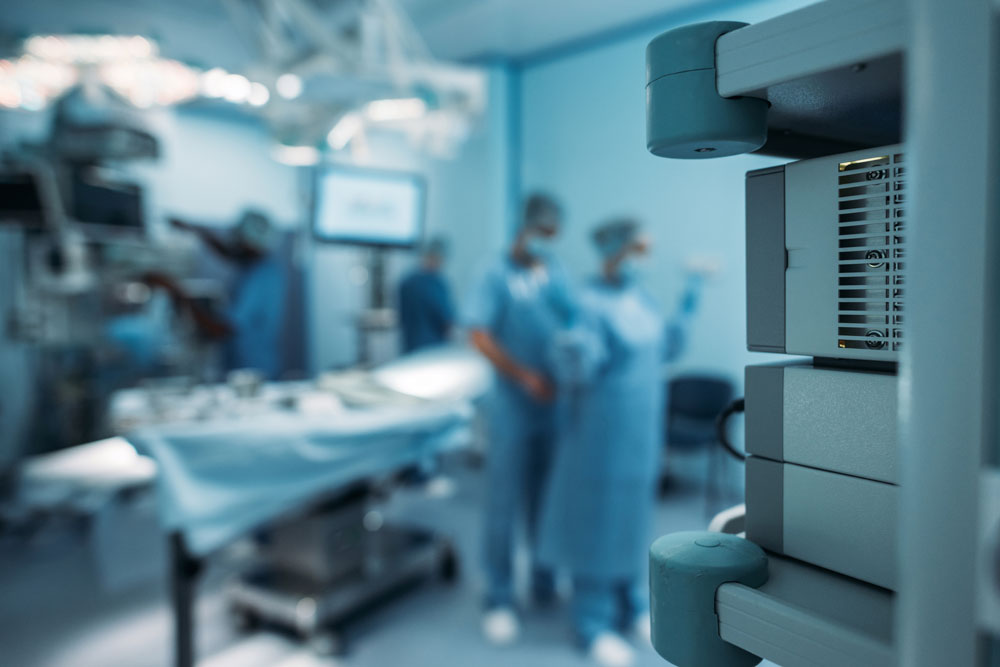Testing medical equipment For Amphia
Like all hospitals, Amphia, one of the Netherlands’ larger general hospitals, uses equipment that must comply with strict requirements. After all, interruption, failure, or a shortened lifespan of the critical medical equipment due to poor Power Quality, for example, can pose a risk to patient safety. “Amphia asked HyTEPS to investigate what level of harmonics and voltage dips a number of medical devices were immune to,” says Mark Kurvers, Student Engineer, HyTEPS. “They also wanted to know whether the harmonics that devices inject back into the system (emission) met the international IEC 60601 standard for medical devices.”

Investigate possible effects and emission harmonics
“During a hospital visit, people have no idea of the amount of staff and work going on behind the scenes to ensure patient care. This involves different parties, such as HyTEPS. Therefore, it was a great experience for me to provide evidence that the Power Quality in a hospital’s installation has a direct effect on the operation of devices.”
Amphia was keen to make sure that the harmonic distortion – THDu – in the installation was contained. This can have an effect on all devices connected to an installation. These may fail, not work properly, or experience a reduced lifespan. It also tested for voltage dips, which can be caused by starting up larger machines, or short circuits in an installation. Voltage dips that exceed a prescribed ‘safe’ standard can lead to equipment failure. It was confirmed in a controlled environment that certain devices were not immune to a certain THDu level or did not properly meet the medical standard for voltage dips. The THDu limit of the equipment confirmed that the relatively high harmonic distortion was actually causing problems at the hospital. The hospital is looking into the possibility of strengthening the grid in terms of Power Quality by installing a third DRUPS – a dynamic UPS with integrated emergency power generator.
Mark: “This was my first individual scientific project at Eindhoven University of Technology (TU/e), and of course I’ve learned a thing or two. Not only has my technical knowledge related to Power Quality increased, my soft skills have also improved. In this project, communication between the various parties – Amphia, TU/e and HyTEPS – was of great importance. Not all parties are specialized in the field of Power Quality, so it was important to clearly articulate the technical jargon for non-electro-technically trained people. What I learnt in the technical field mainly had to do with the behavior of voltage dips and harmonics, combined with understanding different standards such as parts of IEC 61000 and EN 50160. Since I am still a student and haven’t seen many installations, seeing a new large installation is always something special. For example, I have now seen a DRUPS systems, which I only covered in theory during my studies, in real life!”